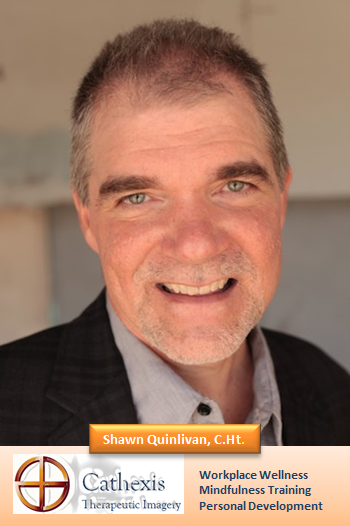
We spend a third of our lives sleeping. Our identities dissolve into a realm that exists beyond time, electronic stimulation and the demands of the waking world. Phantom presences swirl about as we drift through dreams. Where do these subconscious journeys lead us? And what are the benefits of a devotional relationship with sleep?
Sleep is a medium to which we are all bound, a profound and often mysterious relationship of mind, body and spirit—an ethereal connection with the conscious energy of the universe. Sleep is a sacred vessel we share in common, a circadian journey into uncharted territories of subliminal awareness and self-discovery.
Throughout history man has pondered the enigma of sleep. Many indigenous cultures hold that while sleeping, the soul transcends the body. It is believed that unencumbered by flesh and bone, the soul, or spirit, wanders to distant places or alternate realities and communes with divine powers—with angels and emissaries—giving rise to certain dreams and visions. This is akin to what is known as astral projection, a phenomenon acknowledged by science (see the article Understanding The Out-Of-Body Experience From A Neuroscientific Perspective here).
The hypotheses on sleep rendered by the scientific community over the years are numerous, yet in a profound departure from the purely physiological theories commonly preferred by physicians, Swiss neurologist and child psychologist, Edouard Claperède, observed that:
” . . . sleep has its significance not as a passive state, but as an active instinct, like all the other instincts of animal life.”
Claperède’s observation formed a valuable and influential contribution to science’s evolving theories on sleep, casting new perspectives beyond mere chemical and mechanical considerations. Many of the obscure and unexplained occurrences of sleeping, those existing more in the realms of psychology and the innate functioning of the subconscious mind, were contemplated in light of this viewpoint.
Our Dream Symbols

Dreams have served as a portal to other realms for shaman, holy men, prophets, and medicine men from indigenous cultures throughout time, reminding us of the importance of this mystical otherworld of consciousness.
Symbols occur in dreams when events take place in our lives that we are subconsciously aware of but are not yet willing to acknowledge; consequently, the awareness manifests symbolically in the dream state. Symbols also recur in dreams, or the dreams themselves recur, sometimes in slightly varying episodes. Recurring dreams and dream symbols that invoke a similar emotional response can be rooted in a past anguish or forgotten trauma, or represent an attempt to compensate for some perceived defect in character or attitude.
Yet expressions of repressed emotions, memories, traumas, challenges of character, or events we are not ready to consciously acknowledge, are not the only basis for symbolic dreams. Indeed, certain elements of dreams commonly occur which are not necessarily particular to, nor derived from, the personality or individual experience of the dreamer. Sigmund Freud first observed such elements and called them “archaic remnants.” Carl Jung referred to them as “primordial images” or “archetypes,” and described them as:
” . . . mental forms whose presence cannot be explained by anything in the individual’s own life and which seem to be aboriginal, innate, and inherited shapes of the human mind.”
Jung connected archetypes across cultural boundaries and conceptualized them as fundamental, instinctual forces that somehow exist beyond our comprehension. He believed these archetypes represent mythical characters residing within the collective unconscious of people worldwide.
The Doorstep Of The Temple
Science tells us that sleep plays a critical role in immune function, metabolism, memory, learning, and many other vital functions. Considering its restorative properties, psychological benefits, and overall value to our health and well-being, sleeping well is of paramount importance. Swagger, bravado, and false pride about not needing to sleep, which often go hand in hand with unhealthy lifestyles and the glorification of being busy, suggest an underlying lack of self-regard. And as for productivity, research studies show that we are far more creative and productive when we are well rested.
Sleeping well means dreaming well. We naturally hallucinate in dreams, where our thoughts, feelings, experiences, expectations, memories, and attachments are mixed together. This is a subconscious releasing and balancing necessary for emotional growth. Dreaming is imminently important in its psychological benefits. Many challenges of wisdom—assimilating, integrating and moving ahead with new insight and maturity—are related to dreams and their symbols. Dreaming is our primal and instinctive way of releasing the old and accepting the new. Not surprisingly, many who find themselves stuck in unhealthy patterns and familiar disappointing outcomes in life, practice poor sleep habits and suffer from sleep deprivation.
People routinely seek pharmaceutical solutions for sleeping problems. Yet results from studies on prescription sleep aids demonstrate the average sleeping time increases by only a few minutes each night, and the disturbing side effects of these habit forming drugs include amnesia and episodes of somnambulism (otherwise known as ‘sleep walking’). Most sleep medications function by blocking the formation of memories, which, among other negative aspects, interrupts normal rapid eye movement dream cycles and significantly alters or negates the intuitive benefits of dreaming. Users of prescription sleep aids commonly report waking up feeling groggy and unmotivated. The use of other sedative or narcotic prescription medication, drinking alcohol, or consuming illicit drugs can exacerbate this situation.
Equilibrium
The homeostasis of the total functioning of our bodies, including the critically important role of sleep, is maintained within the subconscious mind. This includes aligning our physiological and psychological processes—the relationship of our bodily functions to our attitudes, beliefs, thoughts and words—such as those about sleep. If we say “I don’t sleep well” or “I can’t sleep at night,” we won’t. If we do not believe in the value of sleep or treat it with the proper reverence, we will not reap the rewards. If we disrespect ourselves around sleep, we will not manifest the inherent benefits of health and well-being associated therewith.
“We are such stuff as dreams are made on; and our little life is rounded with sleep.” ~William Shakespeare
The importance of dreams, in particular, cannot be underestimated. Indeed, as acknowledged by Freud and Jung, the founding fathers of modern psychology, dreams are a lucid gateway to the exploration of consciousness. Maintaining a healthy relationship with sleeping—and dreaming, involves a steadfast resolve in both actions and words. This requires being mindful about our thoughts and attitudes, our internal and external dialogue, and our behaviors related to sleep.
Here are some more helpful suggestions for sleeping well:
- Exercise regularly and meditate or practice yoga to manage stress
- Limit refined sugars in your diet, especially in the evening
- Moderate alcohol and caffeine consumption
- Turn off electronic screens for at least 30 minutes before going to bed
- Read prose, poetry, whimsical tales or literary works steeped in metaphor before sleep (remember those bedtime stories?) to stimulate your subconscious mind
We spend a third of our lives sleeping. To sleep well, to rest and rejuvenate, to regenerate and heal, to learn and grow . . . requires embracing and respecting sleep in all its mystical and ineffable qualities. Revere it. Speak well about it. Avoid interfering with it. Practice devotions and rituals to cultivate a healthful communion with sleep, this hallowed and sublime connection of deeper consciousness.
©2016 Shawn Quinlivan, C.Ht. & Cathexis Therapeutic Imagery. All Rights Reserved.
 Cathexis Therapeutic Imagery specializes in innovative approaches to workplace wellness, mindfulness training, and personal development. Via private coaching, presentations, workshops, training events, and our partnership in the unique online wellness community Your Wellness Room—used by Kaiser Permanente, EFactor and other notable companies—our nationally recognized programs and practices help people and organizations make positive changes. Please call for a free consultation at (818) 512-4371 or contact us via email.
Cathexis Therapeutic Imagery specializes in innovative approaches to workplace wellness, mindfulness training, and personal development. Via private coaching, presentations, workshops, training events, and our partnership in the unique online wellness community Your Wellness Room—used by Kaiser Permanente, EFactor and other notable companies—our nationally recognized programs and practices help people and organizations make positive changes. Please call for a free consultation at (818) 512-4371 or contact us via email.

